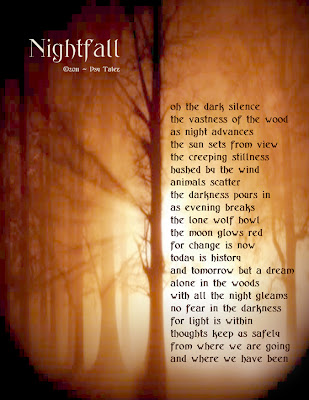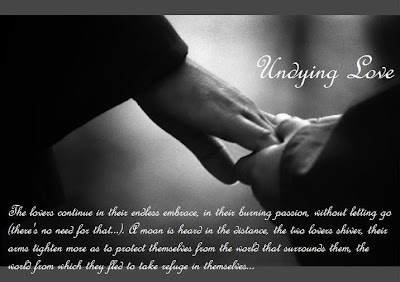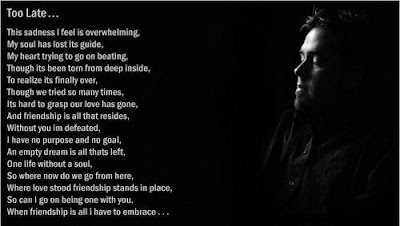Poems About Life Biography
source(google.com)
It is said that when an Arab man falls in love with a woman, he spends sleepless nights composing the most intimate and romantic kind of poetry for her.
But while expressing his love for his land and country, he catches the fever, reciting nationalistic poems that often go back hundreds of years, unwavering in their intensity.
"When I say, 'I miss her warm embrace, her silky touch, her soothing song', wouldn't you also fall in love with the desert when I describe it like that?" the renowned Emirati poet Rashid Sharar asks.
"Before, a poet would limit his poetry to the area where he lived and the stories that happened there," said Sharar. "That way we can trace back what happened where and when."
One of the earliest Emirati poets whose work has survived to this day is Al Majidi ibn Daher, who lived in Ras Al Khaimah in the 17thcentury.
His poems captured the struggles of seamen of that time. His verses also captured the habits and stories of the most prominent bedu tribes as he travelled across the desert.
"You can find old poems, some pre-Islamic, that comment on every aspect of life, from the most mundane - like complaints about lack of water - to irresponsible youth, to tribal marriages and battles that help us trace our own history," said Sharar, who has been writing poetry for more than four decades, since he was 18 years old.
Looking over his own collection of poems, Sharar notices a transformation from the more localised poems to ones that address "global" events, and can be viewed as more "consumer"-oriented.
"During the pan-Arab era of the 1960s and early 1970s, poems were all about that. When poets and poetesses now write, they keep the audience in mind," he said.
Popular locals shows such as Prince of Poets and Millions Poet, where Arab poets compete for prizes, are testament to the survival of this oral heritage, even if its content is veering towards more commercial topics.
However, not all poetry has a "special meaning", according to Ahmed Rashed Thani, another famous Emirati poet and author.
"I sit and write about whatever comes to mind. Poetry is part of our lives like breathing," said Thani, 49.
With titles such as Tears of a Candle, Eye of the Laughing Seagull and Inside the Cage, Thani's poems have commented on every aspect of life.
"Poetry is more just about identity, it is a reflection of a society, where it has been and where it is heading," he said.
"If you want to know what is the latest issue in a community, look at the poems being composed by its members."
source(google.com)
It is said that when an Arab man falls in love with a woman, he spends sleepless nights composing the most intimate and romantic kind of poetry for her.
But while expressing his love for his land and country, he catches the fever, reciting nationalistic poems that often go back hundreds of years, unwavering in their intensity.
"When I say, 'I miss her warm embrace, her silky touch, her soothing song', wouldn't you also fall in love with the desert when I describe it like that?" the renowned Emirati poet Rashid Sharar asks.
"Before, a poet would limit his poetry to the area where he lived and the stories that happened there," said Sharar. "That way we can trace back what happened where and when."
One of the earliest Emirati poets whose work has survived to this day is Al Majidi ibn Daher, who lived in Ras Al Khaimah in the 17thcentury.
His poems captured the struggles of seamen of that time. His verses also captured the habits and stories of the most prominent bedu tribes as he travelled across the desert.
"You can find old poems, some pre-Islamic, that comment on every aspect of life, from the most mundane - like complaints about lack of water - to irresponsible youth, to tribal marriages and battles that help us trace our own history," said Sharar, who has been writing poetry for more than four decades, since he was 18 years old.
Looking over his own collection of poems, Sharar notices a transformation from the more localised poems to ones that address "global" events, and can be viewed as more "consumer"-oriented.
"During the pan-Arab era of the 1960s and early 1970s, poems were all about that. When poets and poetesses now write, they keep the audience in mind," he said.
Popular locals shows such as Prince of Poets and Millions Poet, where Arab poets compete for prizes, are testament to the survival of this oral heritage, even if its content is veering towards more commercial topics.
However, not all poetry has a "special meaning", according to Ahmed Rashed Thani, another famous Emirati poet and author.
"I sit and write about whatever comes to mind. Poetry is part of our lives like breathing," said Thani, 49.
With titles such as Tears of a Candle, Eye of the Laughing Seagull and Inside the Cage, Thani's poems have commented on every aspect of life.
"Poetry is more just about identity, it is a reflection of a society, where it has been and where it is heading," he said.
"If you want to know what is the latest issue in a community, look at the poems being composed by its members."
Poems About Life 2013 Pics Images Photos Pictures
Poems About Life 2013 Pics Images Photos Pictures
Poems About Life 2013 Pics Images Photos Pictures
Poems About Life 2013 Pics Images Photos Pictures
Poems About Life 2013 Pics Images Photos Pictures
Poems About Life 2013 Pics Images Photos Pictures
Poems About Life 2013 Pics Images Photos Pictures
Poems About Life 2013 Pics Images Photos Pictures
Poems About Life 2013 Pics Images Photos Pictures
Poems About Life 2013 Pics Images Photos Pictures
Poems About Life 2013 Pics Images Photos Pictures















No comments:
Post a Comment